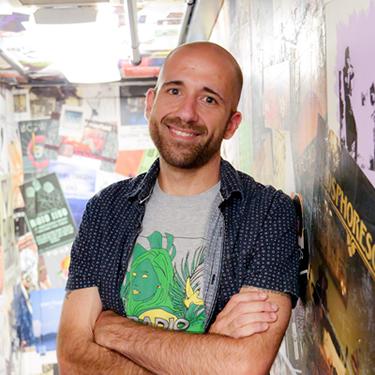 Sports gambling has taken over the airwaves and playing surfaces of professional sports.
Sports gambling has taken over the airwaves and playing surfaces of professional sports.
Jared Bahir Browsh, assistant teaching professor in the department of ethnic studies at the University of Colorado, Boulder, says scandals are also emerging.
Dr. Jared Bahir Browsh is scholar and educator specializing in the political economics of sports and the media and the relationship between money, policy, and representation of identity in popular culture.
Vulnerabilities Emerge Six Years After Sports Gambling Legalization
On May 14, 2018, the Supreme Court overturned the Professional and Amateur Sports Protection Act, allowing states to legalize sports betting. Six years later, 38 states and the District of Columbia have done so, collecting nearly $11 billion in tax revenue in 2023 alone. Recent surveys have shown that two in five adults have wagered on sports in the last year, totaling $120 billion. As states and sports books enjoy the windfall, a number of scandals have emerged, endangering the credibility of competition. As the market grows, we are seeing who is most vulnerable to financial temptations on and off the field.
History has shown that college students, particularly young men, are the most susceptible to this temptation both as competitors and gamblers. For every Pete Rose, there are dozens of young, lower level, players that are susceptible to influence, exemplified by past scandals involving the City College of New York, Boston College and Arizona State. Star players earn millions of dollars from endorsements and their contracted compensation, but thousands of others compete with the ability to impact the outcome of wagers including proposition bets based on individual performance outside the results of the game. NCAA president Charlie Baker has suggested banning prop bets in college sports to reduce the harassment of individual players.
Off the field, gambling addiction is at an all time high, with the largest increase among college age bettors. NBA commissioner Adam Silver has called for federal oversight to fill in the gaps presented by the patchwork of state regulations. Any action should also include addiction support and education.
Countries with longer histories of legal sports betting have shown that scandal is unavoidable, but more uniform policies, cooperation between sporting organizations, and addiction support could ultimately mitigate the negative impact of this growing industry.
Read More:
[The Conversation] – Sports gambling creates a windfall, but raises questions of integrity – here are three lessons from historic sports-betting scandals
